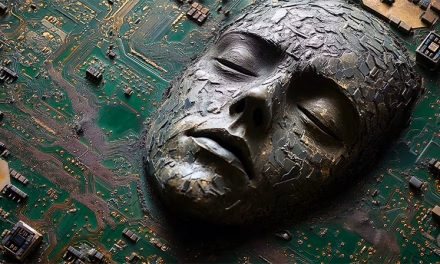Star Trek: Section 31 has had a week to exist, and the reviews are in: Some Star Trek fans would rather have an Alpha Ceti V eel burrow into their brain stem than sit through another episode. No judgment. If that’s your worldview, I respect it. You might even be right.
Personally? I didn’t hate it. I didn’t love it. I was left apathetic— and for me, that’s the worst outcome possible. Make me love it (See: Andor). Make me hate it (See: Rebel Moon). But Star Trek: Section 31 left me indifferent, and that’s a failure of storytelling.
And I love Philippa Georgiou. She was a brilliant character, the ruthless Emperor of the Terran Empire, Her Most Imperial Majesty, Mother of the Fatherland, Overlord of Vulcan, Dominus of Qo’noS, Regina Andor, Philippa Georgiou Augustus Iaponius Centarius. A walking declaration of war, equal parts terrifying and captivating.
And yet, Section 31 felt… hollow.
The high production values were there, but the storytelling was unfocused. It meandered when it should have zeroed in on the fact that someone had a weapon capable of destroying an entire quadrant of space!
Instead, it reminded me of a late-80s sci-fi pilot—rough around the edges, full of potential, but still searching for its core.
Think Alien Nation. You watched it. Don’t act like you didn’t. That first season wasn’t stellar—but as it evolved, it became one of the best speculative shows of the late ’80s. It challenged us. It made us think.
That’s the real job of a pilot. Not to astound—but to pique interest. To lay the foundation for something bigger. Right now, Section 31 hasn’t done that.

The Utopia Paradox
Section 31 suffers from what I call the Utopia Paradox:
If the Federation is a perfect society, why do conflicts exist at all?
The Utopia Paradox is the idea that if a society is truly perfect, it should have no internal conflicts, no inequalities, no hidden struggles—yet in practice, no civilization can function without tension, secrecy, or systemic flaws.
In Star Trek, this paradox manifests in the Federation: a post-scarcity, highly advanced, socially progressive civilization. But stories like Deep Space Nine and Section 31 reveal the cracks—maintaining that utopia requires compromises, hidden power structures, and moral ambiguity.
The paradox forces a question:
Is it really a utopia if it needs secret organizations to sustain itself?
Or is that just the cost of stability? I hate the assumption that utopias can be perfect. There is no society so flawless that humans won’t find a way to mess it up. The Federation is a marvel—but a static utopia? Impossible.

The Necessity of Shadows
Even the first Star Trek series evolved past Roddenberry’s original idealism. By the midpoint of The Next Generation, the writers realized something fundamental: A utopia isn’t static. It requires work. That’s when Trek began embracing moral complexity. Deep Space Nine took it even further, showing that big ideas have cracks, and idealism alone doesn’t hold the galaxy together.
And that’s where Section 31 comes in. The idea that the Federation wouldn’t need intelligence agencies, secret operations, or power brokers? Absurd. Consider:
- A thousand worlds.
- Dozens of major species.
- Interstellar travel on demand.
- An empire-sized government with no oversight? Please. Here on modern Earth, there are HUNDREDS of publicly acknowledged intelligence agencies. And that’s not counting the ones that don’t officially exist.
- The idea that the Federation—an interstellar government managing countless civilizations—wouldn’t have its own secret organizations? Laughable.
And yet, some fans feel betrayed by this. They believe that if humanity truly advances, covert ops won’t be necessary. To them, Section 31 represents a failure of imagination—a crack in Star Trek’s hopeful vision.
To others, it’s an inevitable truth: No matter how advanced we become, someone, somewhere, will always be playing the long game in the shadows.
Maybe Section 31 isn’t the Star Trek you wanted. But it might just be the Star Trek that makes the most sense.
Section 31 is a one-off Star Trek motion picture, streaming now on the Paramount Plus streaming service.
![]()
Thaddeus Howze is an award-winning essayist, editor, and futurist exploring the crossroads of activism, sustainability, and human resilience. He's a columnist and assistant editor for SCIFI.radio and as the Answer-Man, he keeps his eye on the future of speculative fiction, pop-culture and modern technology. Thaddeus Howze is the author of two speculative works — ‘Hayward's Reach’ and ‘Broken Glass.’













You must be logged in to post a comment.